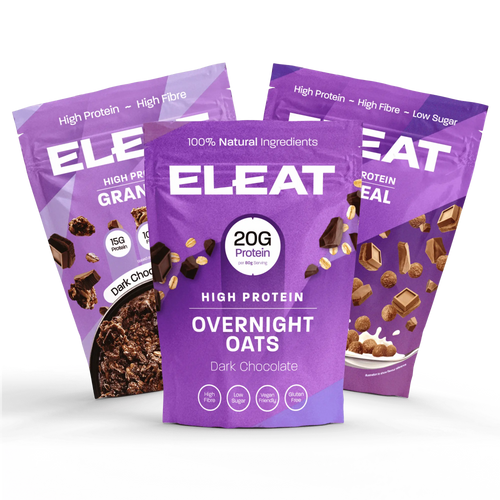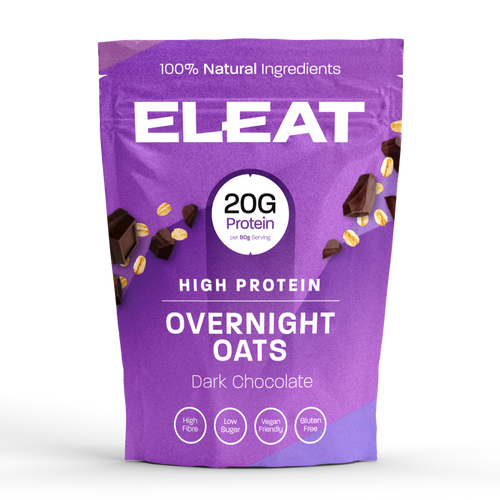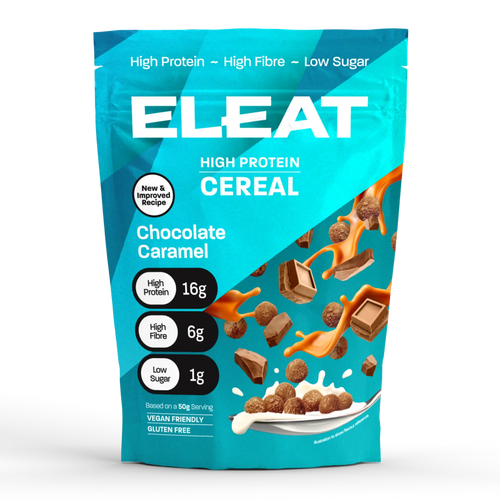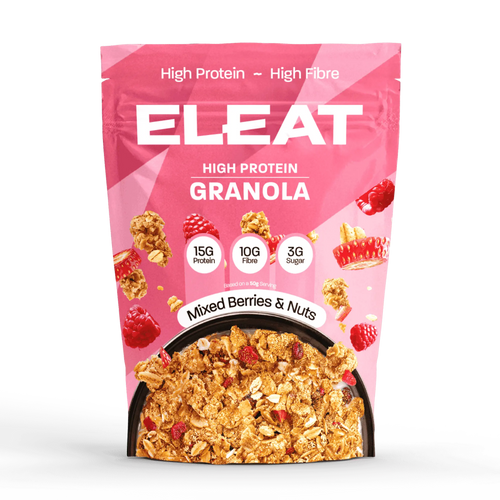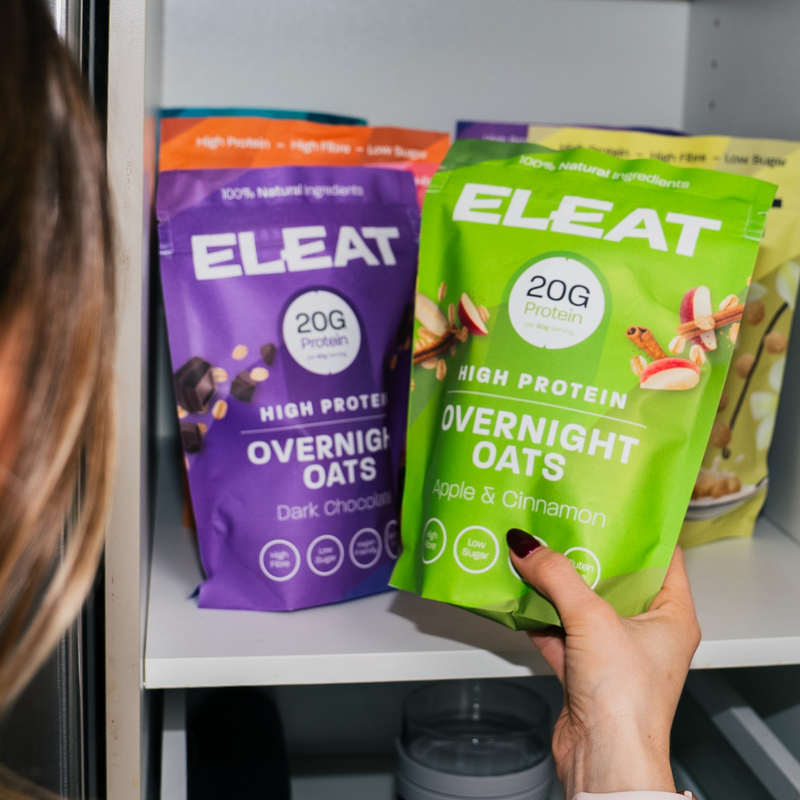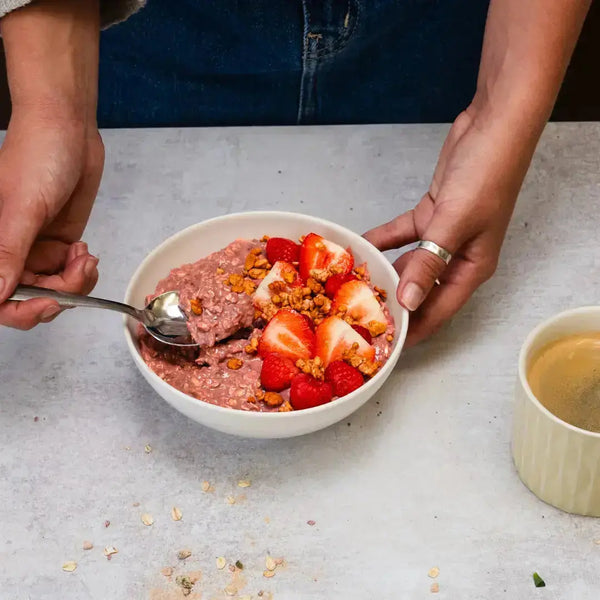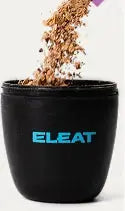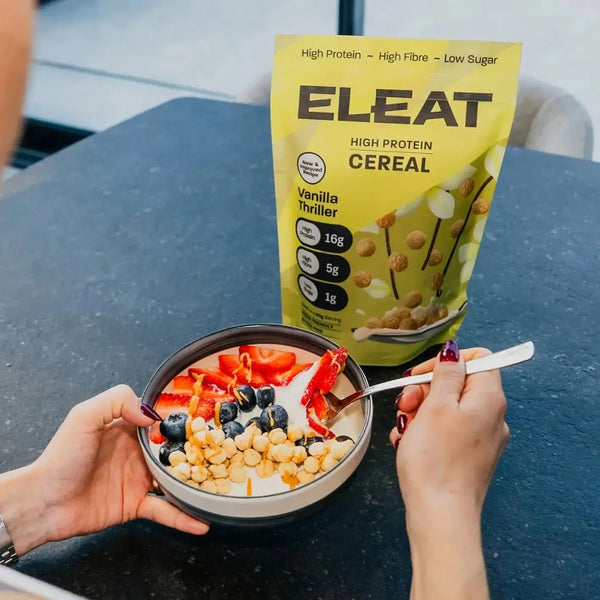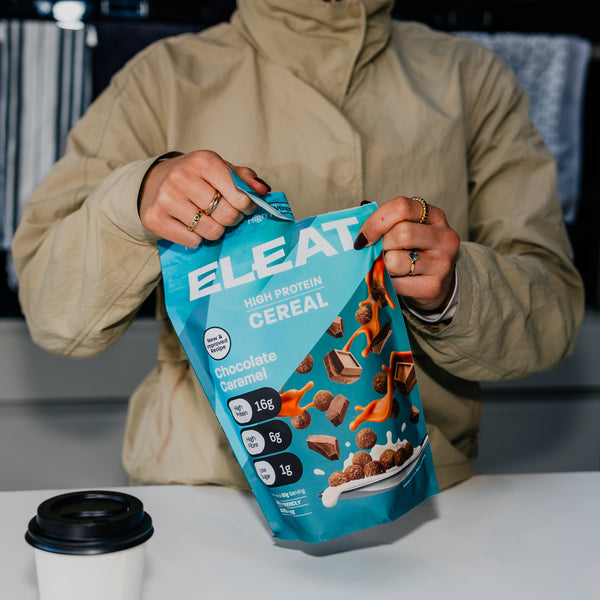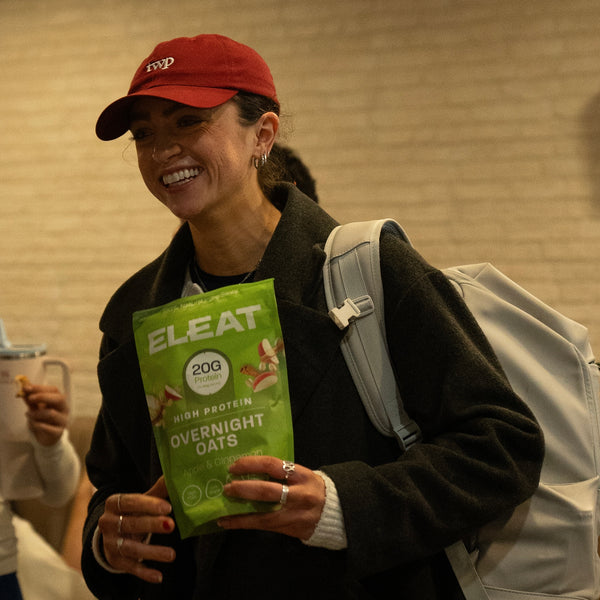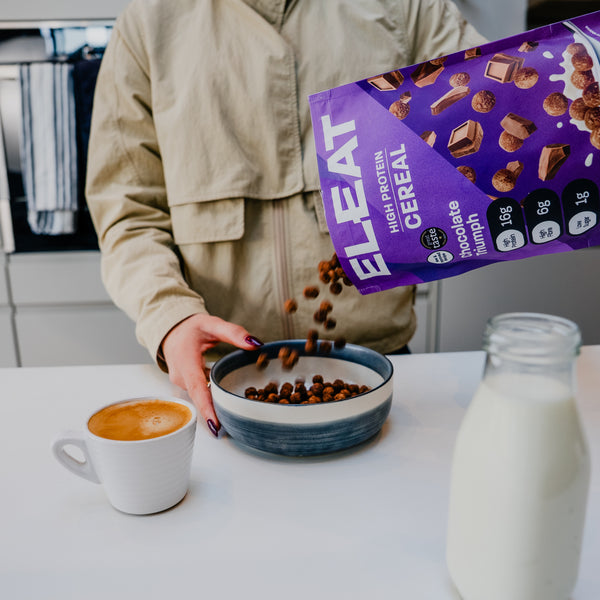In this article:
Cereal is a breakfast staple for millions, offering a quick and convenient way to start the day. But here’s the question: is your morning bowl actually healthy? Many cereals are marketed as wholesome choices but may be hiding high levels of sugar, minimal fibre, and artificial additives that can sabotage your nutrition goals before you’ve even left the house.
Breakfast is often called the most important meal of the day for good reason - it sets the tone for your energy, focus, and overall well-being. Starting your morning with a healthy, nutrient-dense meal can help stabilise blood sugar levels, boost metabolism, and keep you feeling full until lunch.
The Appeal of Breakfast Cereal
Breakfast cereal has become a beloved staple in households worldwide - and it’s easy to see why. It’s quick to prepare, requires minimal effort, and offers endless versatility. Whether you prefer it drenched in milk, sprinkled over yoghurt, or even enjoyed dry as a snack, cereal provides an easy solution for busy mornings.
However, not all cereals are created equal. While some deliver a nourishing mix of whole grains, fibre, and essential nutrients, others are essentially bowls of sugar and refined carbs disguised as a “healthy” start to your day. Brightly coloured packaging and buzzwords like “natural” or “fortified” can make it challenging to separate the good from the bad.
So, how do you know if your cereal is fueling your body or simply delivering a sugar rush? It all comes down to the ingredients and nutritional profile. Understanding what differentiates a healthy cereal from an unhealthy one is key to making better breakfast choices - and that’s exactly what we’re here to explore.
What To Look For In A Healthy Breakfast Cereal
Choosing a healthy breakfast cereal can feel overwhelming with so many options on the shelf. However, focusing on a few key criteria can help you separate the truly nutritious choices from the sugary imposters. Here’s what to look for when selecting your morning fuel:
High in Fibre
Aim for cereals with at least 3–5 grams of fibre per serving. Fibre not only supports digestive health but also keeps you full longer, preventing mid-morning hunger pangs.
Low in Added Sugar
Check the label and stick to cereals with less than 6 grams of added sugar per serving. Many cereals are loaded with hidden sugars, which can lead to energy crashes later in the day.
Whole Grains as the First Ingredient
Whole grains, like oats, wheat, or quinoa, should be listed as the first ingredient. They’re packed with essential nutrients, slow-releasing carbs, and more fibre compared to refined grains.
Moderate Protein Content
Look for cereals that provide 3–7 grams of protein per serving. Protein helps support muscle repair, keeps you satiated, and works alongside fibre to keep you energised.
Some examples of healthy ingredients to prioritise include oats, bran, nuts, and seeds. These nutrient-dense components add natural fibre, healthy fats, and a variety of vitamins and minerals to your breakfast bowl.
Finally, steer clear of cereals with artificial additives, food dyes, and overly processed ingredients. These may look appealing on the shelf, but they offer little nutritional value and can detract from the overall healthfulness of your breakfast. By focusing on natural, whole-food ingredients and avoiding unnecessary additives, you can make a cereal choice that truly supports your health and sets the tone for a productive day.
Common Cereal Pitfalls To Avoid
Navigating the cereal aisle can feel like a minefield, with countless boxes vying for your attention. Many brands use clever marketing tactics to make their cereals appear healthier than they really are.
By staying informed and skeptical of marketing tricks, you can avoid these common traps and make smarter choices for your breakfast routine. Remember: The front of the box is designed to sell you the product, but the back of the box tells you what’s really inside.
Misleading Marketing Terms
Words like “natural,” “fortified,” or “made with whole grains” can create a false sense of healthiness. Just because a cereal is “fortified with vitamins” doesn’t mean it’s inherently good for you - it could still be packed with sugar and processed ingredients. Always check the ingredient list and nutrition label to get the full picture.
Excessive Sugar
Some cereals contain more sugar per serving than a candy bar. Avoid cereals with sugar, corn syrup, or other sweeteners listed near the top of the ingredients list. Even cereals marketed for children or labeled as “low fat” can often be loaded with sugar to compensate for flavor.
Artificial Coloring and Additives
Brightly colored cereals often contain artificial dyes and additives, which add nothing to their nutritional value and may even have negative health effects. Stick to cereals with natural ingredients you can recognise.
Empty Carbs
Many cereals are made from refined grains that offer little nutritional value and lead to quick energy crashes. These cereals might be crunchy and satisfying at first, but they won’t keep you full for long.
“Healthy-Looking” Brands
Even cereals branded with images of wheat fields or phrases like “heart-healthy” can be deceiving. Popular options like granola or muesli might seem like smart choices, but many are loaded with hidden sugars and fats. Always read the label to ensure they meet the criteria for a healthy cereal.
Best Healthy Cereal Options
Finding the perfect healthy cereal can feel like searching for a needle in a haystack, but there are brands out there that prioritise nutrition without compromising on taste. Here’s a list of some top-rated healthy cereal brands that deserve a spot on your breakfast table:
ELEAT: Known for their commitment to wholesome ingredients and clean nutrition, ELEAT offers cereals that are high in fibre, low in sugar, and packed with whole grains.
Bio&Me: This brand focuses on gut health, offering cereals and granolas filled with prebiotic fibres, whole grains, and natural flavors.
Surreal: A cereal brand that reimagines childhood favorites but without the sugar and with added protein, making it a fun and healthy choice.
ELEAT’s Alternative Breakfast Options
In addition to their healthy cereals, ELEAT also provides alternative breakfast options that make eating well even easier:
Overnight Oats: Perfect for busy mornings, ELEAT’s overnight oats are pre-portioned and made with high-quality oats, nuts, and seeds. Simply soak them in milk or a dairy-free alternative overnight, and wake up to a creamy, nutrient-packed breakfast.
Granola: ELEAT’s granola is another excellent choice for those who love a crunchy, versatile option. Made with natural ingredients and no added sugars, it’s perfect for topping yogurt, smoothie bowls, or even eating straight out of the bag.
With brands like ELEAT, Bio&Me, and Surreal, you don’t have to sacrifice flavor for nutrition. Whether you choose a classic cereal, overnight oats, or granola, these options help you start your day on the right note with a meal that’s both satisfying and good for you.
Conclusion
Choosing a healthy breakfast cereal is about more than grabbing the most eye-catching box on the shelf. By focusing on key nutritional elements like fiber, whole grains, low sugar, and natural ingredients, you can make smarter choices that support your health and energy levels throughout the day. Avoid the traps of misleading marketing, sugary cereals, and empty carbs, and instead opt for brands like ELEAT, Bio&Me, or Surreal for nourishing, delicious options.
Starting your day with the right breakfast sets the tone for better focus, energy, and overall well-being - so why settle for anything less? Your mornings deserve a bowl of health, flavour, and substance.
